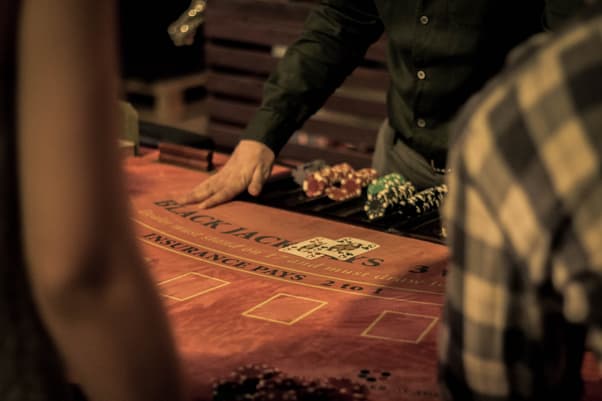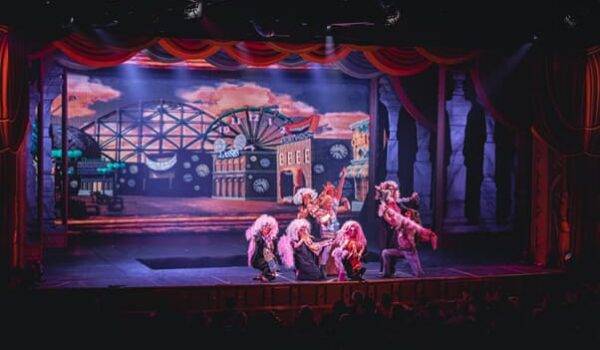There’s something undeniably cinematic about a casino. The glint of chandeliers, the hushed suspense around a roulette table, the click of high heels on marble floors—it’s a world steeped in spectacle and suggestion. But beyond their real-world opulence, casinos have long played a vital role as theatrical settings, both on screen and on stage. With all the drama, tension, elegance, and mystery they contain, casinos are more than gambling hubs—they are immersive stages for some of the most compelling human stories.
Casinos as Natural Theaters
Casinos, by design, are structured like performances. There’s lighting to highlight the action, costuming in the form of evening gowns and tuxedos, and clear divisions between performers (dealers, hosts) and audience (players). Every player assumes a role, whether it’s the calculated poker shark, the nervous first-timer, or the high-rolling mystery man.
It’s no wonder that directors and playwrights have long used the casino as a metaphor-rich environment. In films like Casino Royale, Ocean’s Eleven, or even Rain Man, the casino becomes a stage for high-stakes tension and personal revelation. Likewise, in theater productions, casinos often serve as a setting where fate, fortune, and identity collide.
The architecture of casinos also plays a part in their theatricality. Lavish interiors with dramatic staircases, mirrored walls, and ambient lighting mimic classic theater designs meant to evoke emotion and grandeur. This carefully crafted atmosphere creates a sense of anticipation and elevates every interaction to a kind of performance.
Glamour and Illusion: Theater’s Core Ingredients
Just as in traditional theater, casinos rely heavily on illusion. Everything from the lighting to the architecture is carefully crafted to evoke enchantment. No windows. No clocks. Just an endless present tense where anything seems possible.
This theatricality draws in not only gamblers, but storytellers. Writers and directors find in casinos a playground of human behavior—risk, desire, deception, and revelation. It’s a place where characters can mask or reveal themselves, much like a stage actor shedding a role.
For those exploring the world of digital gaming, the same atmospheric appeal translates online. Sites like https://play-fortune.pl/ curate experiences with themes, bonuses, and visuals that echo the immersive worlds of both theater and classic casinos. The element of performance lives on—even when the stage is a screen.
Characters in the Casino
What makes the casino such a fertile setting for drama is the incredible range of characters it brings together. Just like in a well-written play, the casino setting thrives on diversity and tension between personalities.
Here are just a few archetypes commonly seen in casino-centered storytelling:
- The High Roller – confident, secretive, emotionally restrained
- The Romantic Outsider – drawn in by love, not luck
- The Con Artist – always acting, always manipulating
- The Broken Genius – a brilliant mind unraveling under pressure
- The Dealer – seemingly passive, but often a quiet observer of truth
Each of these roles plays off one another in rich, layered ways. Conflict arises not just from money won or lost, but from what those winnings represent: validation, escape, revenge, even redemption.
Romance in a Risk-Filled Environment

Casinos also provide the perfect backdrop for romance. The stakes are high, the lighting is flattering, and the sense of possibility hovers in the air. Whether it’s two lovers meeting at the blackjack table or a last-chance reunion at a bar in Monte Carlo, the combination of luck and emotion creates intense, unforgettable moments.
Romance in casinos isn’t about subtle courtship—it’s bold, risky, and fast-paced. Just like gambling, love in this setting involves instinct and chance. That’s why stories set in casinos often blur the lines between calculated strategy and emotional vulnerability.
These romantic encounters are often driven by secrecy or urgency. Characters are not just falling in love; they are trying to escape their pasts, rewrite their identities, or find a final chance at happiness. In this way, the casino becomes both a setting and a metaphor for emotional stakes.
As gambling culture evolves into the digital age, the dramatic elements remain relevant. Even in the world of no-verification platforms—like those reviewed at https://play-fortune.pl/kasyno/bez-weryfikacji/—players still enter roles, pursue fortune, and occasionally find themselves caught in unpredictable emotional journeys.
Final Thoughts
From roulette tables to whispered confessions over martinis, casinos mirror the very structure of theater: entrances, exits, masks, monologues, and climactic reveals. They continue to inspire storytellers not because of the games, but because of what happens around them—the risks taken, the connections formed, the masks that fall away.
In the end, casinos aren’t just places to play. They are places to perform, to reveal, to transform. And in that sense, they are one of the most theatrical settings of all.
For anyone fascinated by the intersection of performance and play, the casino offers a world where the script is never fully written—and every player gets a chance at the spotlight.
